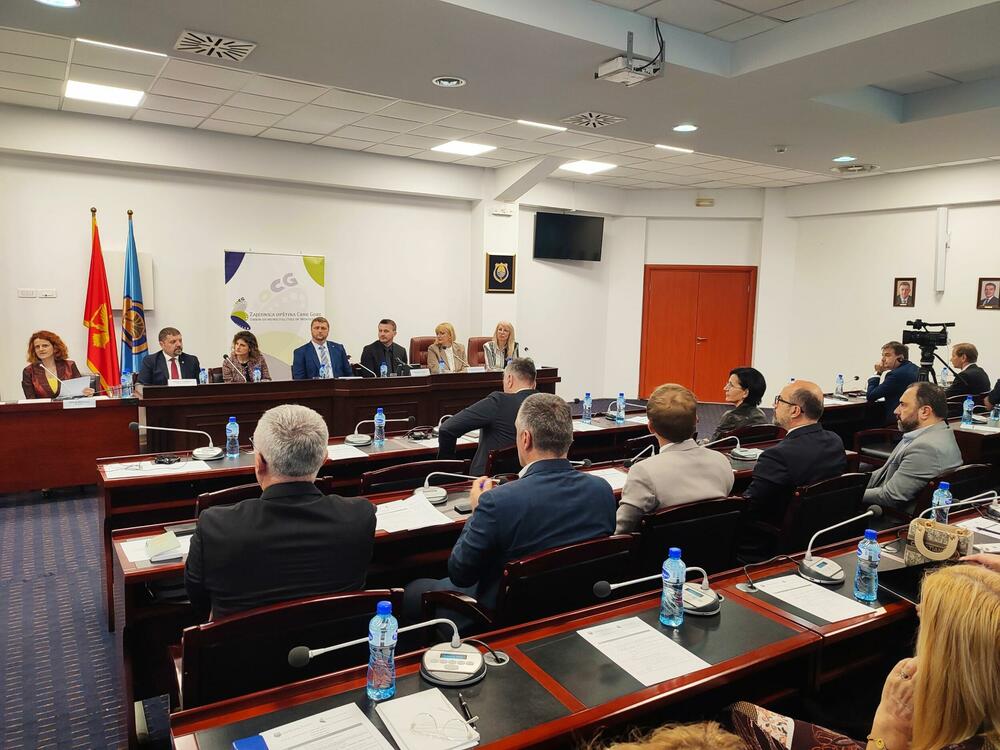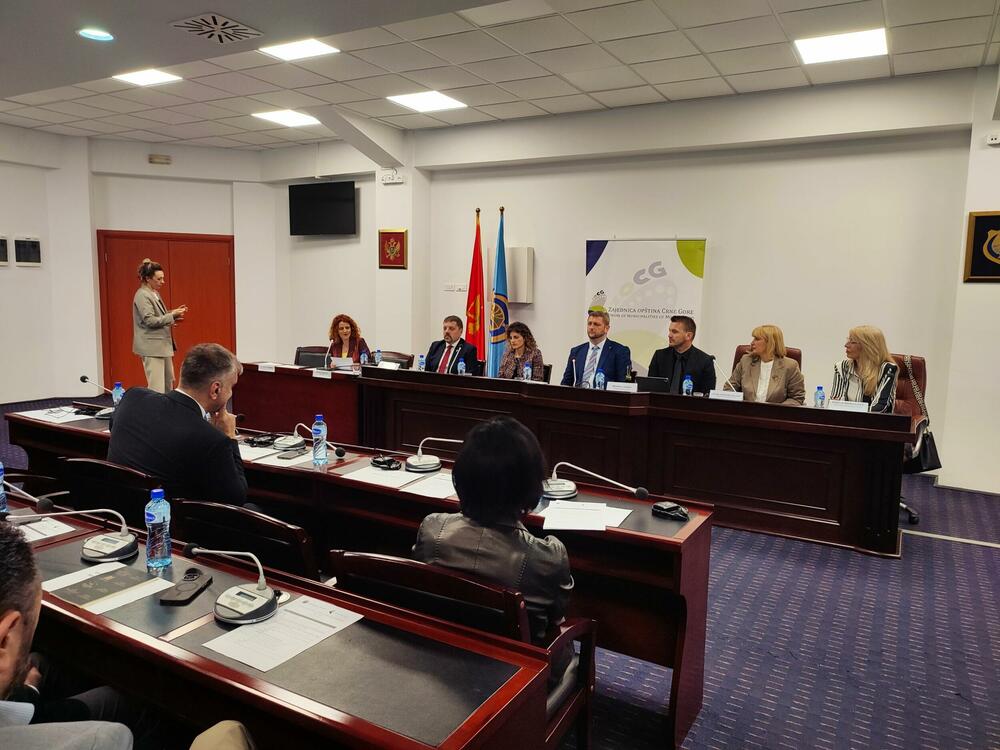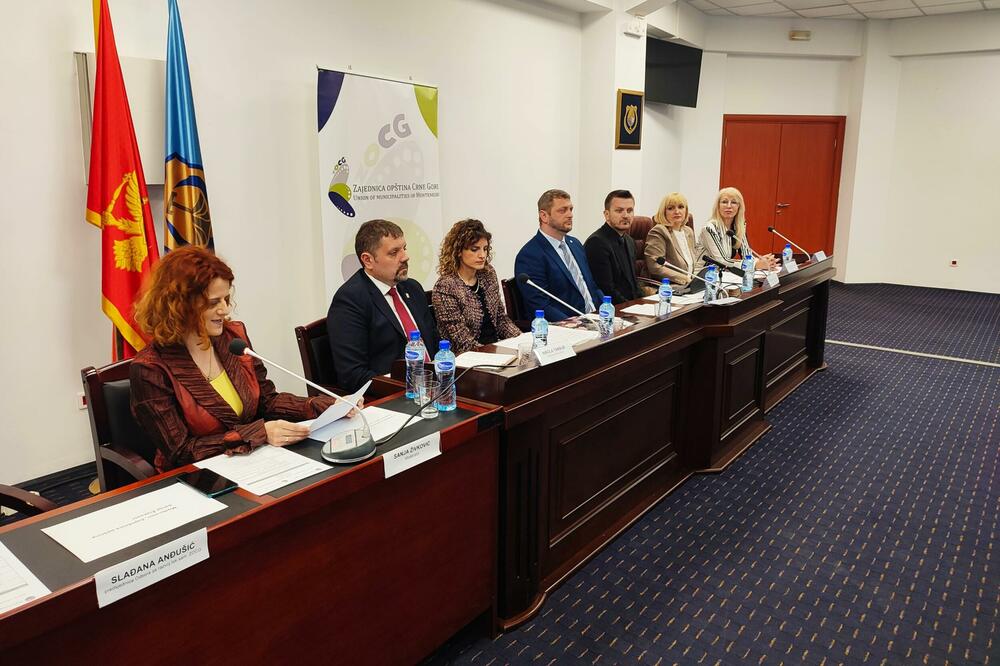"Decentralization in Montenegro - where we are and where we should be" is the name of the round table that was held in Tivat yesterday at the initiative of the President of the Tivat Municipal Assembly Miljan Marković (Nova) and the Community of Municipalities of Montenegro.
This event brought together representatives of the Government, several Montenegrin local governments, the Union of Municipalities, representatives of the Permanent Conference of Cities and Municipalities of Serbia, NALAS, as well as representatives of several embassies. The focus was on topics related to the decentralization of the jurisdiction of the state administration, the expansion of the portfolio of services that local authorities provide to citizens, but also the improvement of the fiscal framework from which municipalities should provide the funds necessary to perform additional tasks that would eventually be transferred to them by the central authorities, the limits of local autonomy self-government, as well as experiences from the region presented by the participants of the round table from Serbia and Albania.
The General Secretary of the Union of Municipalities of Montenegro, Mišela Manojlović, introduced the audience to the report of the Congress of Local Regional Authorities of the Council of Europe and the application of the European Charter on Local Self-Government in Montenegro in the period from 2015 to 2013, which shows that they are also very aware in Brussels. the current highly centralized arrangement of the public administration system in Montenegro and the difficult, or almost dependent, position in which our Government has brought the municipalities.

"A more even distribution of powers between local self-governments and state authorities is necessary, i.e. more flexible methods of public administration. Much can be changed for the better and reformed, starting with the adoption of the new Law on Local Self-Government, the improvement of participatory and inclusive participation of citizens in governance at the local level, as well as the economic aspects of the decentralization process so that municipalities are economically viable, able to respond to possible new competences and the jobs that would be entrusted to them, the municipalities could in the best way create a suitable business environment for the development of local economies," said the President of the Tivat Parliament, Miljan Marković.
His colleague, the President of the Assembly of the Capital City of Podgorce, Jelena Borovinić-Bojiović, emphasized that the competences of local governments should be expanded because they are the authorities in the most direct contact with the citizens and that "it should not be understood as disempowerment of the central government, but rather the qualitative satisfaction of the needs of the citizens that they understand best." and they are understood by the authorities that are closest to those citizens, namely the local administrations".
Borovinić-Bojović also announced the adoption of the new Law on the Capital City, while the Minister of Public Administration Maraš Dukaj promised the imminent adoption of the new Law on Local Self-Government, which, in his words, "will meet the demands of municipalities."
He pointed out that the new law will bring, in addition to municipalities, the introduction of the status of cities, and the decentralization of competences in some of the key areas for the work of local self-governments, such as health, spatial planning, education... Dukaj said that municipalities in Montenegro must have greater powers primarily because citizens, not those who lead them.

"The reform that is being implemented must be based on improved decentralization, because the analysis of the functioning of the local self-government system showed that Montenegro is a centralized state, not only in relation to the region, but also more widely. This was shown not only by us, but also by the analyzes carried out by the Council of Europe. In Montenegro, in the last ten years, it has only been about the centralization of the local self-government system, and that must change," said the Minister of Public Administration, emphasizing the importance of the process of digitalization of the work of local governments, which MJU begins with a pilot project that will be implemented in 10 municipalities.
"Our common goal is to prepare the municipalities in Montenegro for the full implementation of the EU legal framework in our country by fully engaging everyone," said Dukaj. President of the Committee for the Development of Local Self-Government of the Union of Municipalities of Montenegro, Slađana Anđušić, said that the existing Montenegrin system of state administration is "limitedly centralized." "Laws are often passed by deputies without public hearings, without consulting the public and established obligations for municipalities, or municipalities have been stripped of their responsibilities. Decentralization must imply more responsibility, a responsible administration, which must know itself", she emphasized.
Bonus video:





